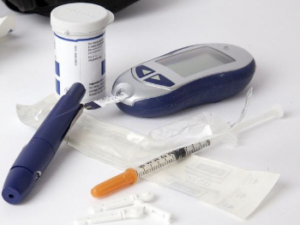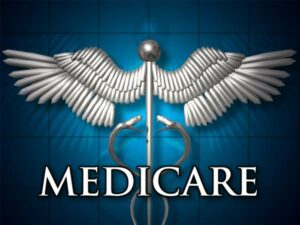- Public Inspection: CMS: Medicare Program: Implementation of Prior Authorization for Select Services for the Wasteful and Inappropriate Services Reduction Model
- CMS: Secretarial Comments on the CBE's (Battelle Memorial Institute) 2024 Activities: Report to Congress and the Secretary of the Department of Health and Human Services
- HHS: Patient Protection and Affordable Care Act: Marketplace Integrity and Affordability
- HRSA Announces Action to Lower Out-of-Pocket Costs for Life-Saving Medications at Health Centers Nationwide
- Public Inspection: HHS: Patient Protection and Affordable Care Act: Marketplace Integrity and Affordability
- Increased Risk of Cyber Threats Against Healthcare and Public Health Sector
- Eight Hospitals Selected for First Cohort of Rural Hospital Stabilization Program
- Announcing the 2030 Census Disclosure Avoidance Research Program
- CMS: Medicare Program; Hospital Inpatient Prospective Payment Systems for Acute Care Hospitals and the Long-Term Care Hospital Prospective Payment System and Policy Changes and Fiscal Year 2026 Rates; Requirements for Quality Programs; and Other Policy Changes; Correction
- CMS: Medicare Program; Hospital Inpatient Prospective Payment Systems for Acute Care Hospitals and the Long-Term Care Hospital Prospective Payment System and Policy Changes and Fiscal Year 2026 Rates; Requirements for Quality Programs; and Other Policy Changes; Correction
- CMS: Medicare and Medicaid Programs; Contract Year 2026 Policy and Technical Changes to the Medicare Advantage Program, Medicare Prescription Drug Benefit Program, Medicare Cost Plan Program, and Programs of All-Inclusive Care for the Elderly; Correction
- CMS: Medicare and Medicaid Programs; Contract Year 2026 Policy and Technical Changes to the Medicare Advantage Program, Medicare Prescription Drug Benefit Program, Medicare Cost Plan Program, and Programs of All-Inclusive Care for the Elderly; Correction
- CMS: Medicare Program; Prospective Payment System and Consolidated Billing for Skilled Nursing Facilities; Updates to the Quality Reporting Program for Federal Fiscal Year 2026
- CMS: Medicare Program; FY 2026 Hospice Wage Index and Payment Rate Update and Hospice Quality Reporting Program Requirements
- Public Inspection: CMS: Medicare Program: Fiscal Year 2026 Hospice Wage Index and Payment Rate Update and Hospice Quality Reporting Program Requirements
988 Crisis Hotline Updates and Adds Social Media Infographics to Partner Toolkit
 The 988 Suicide & Crisis Lifeline has created new social media shareables designed for use as social media posts, stories, and threads. Please be sure to utilize these free tools in your health centers to continue to spread the word about the 988 Suicide and Crisis Lifeline. The free partner toolkit can be found here.
The 988 Suicide & Crisis Lifeline has created new social media shareables designed for use as social media posts, stories, and threads. Please be sure to utilize these free tools in your health centers to continue to spread the word about the 988 Suicide and Crisis Lifeline. The free partner toolkit can be found here.
See ONC’s Latest FAQs Addressing the Change Healthcare Cyberattack
The HHS Office of the National Coordinator (ONC) has updated FAQs on the Change Healthcare/UnitedHealth Group cyberattack, effective May 31, 2024. The FAQs address a variety of issues, including OCR’s investigation, breach report filing, ransomware guidance, HIPAA breach notifications by covered entities, and delegation of breach notifications. ONC indicates that under the HITECH Act, covered entities are ultimately responsible for ensuring that breach notifications occur. Of note, OCR says it understands that in this case, business associate notification to affected covered entities has not yet occurred and that UHG’s website states that they “are not announcing an official breach notification at this time. To help ease reporting obligations on other stakeholders whose data may have been compromised as part of this cyberattack, UHG has offered to make notifications and undertake related administrative requirements on behalf of any provider or customer.”1 OCR says it will not consider the 60-calendar day period from discovery of a breach by a covered entity to start until affected covered entities have received the information needed from Change Healthcare or UHG. ONC recommends that covered entities coordinate with Change Healthcare and UHG who will be providing the breach notifications. Review the HHS FAQs on the cyberattack. OCR plans to update the page as needed.
Sanofi Joins the Ranks of Manufacturers Tightening Restrictions on Use of Contract Pharmacies
 Unfortunately, there’s more bad news to share on the contract pharmacy (CP) front. Last week, the drug maker Sanofi – a major manufacturer of insulin – significantly tightened its restrictions on Community Health Center use of CPs, including placing unprecedented restrictions on CHC-owned off-site pharmacies. Sanofi was one of the first three drugmakers to impose CP restrictions, starting in October 2020. Since then, Sanofi has allowed CHCs to use unlimited CPs if they submitted data to ESP. To date, CHCs have also been able to designate a single CP for each care delivery site without an in-house pharmacy. The new rules, effective July 1, 2024:
Unfortunately, there’s more bad news to share on the contract pharmacy (CP) front. Last week, the drug maker Sanofi – a major manufacturer of insulin – significantly tightened its restrictions on Community Health Center use of CPs, including placing unprecedented restrictions on CHC-owned off-site pharmacies. Sanofi was one of the first three drugmakers to impose CP restrictions, starting in October 2020. Since then, Sanofi has allowed CHCs to use unlimited CPs if they submitted data to ESP. To date, CHCs have also been able to designate a single CP for each care delivery site without an in-house pharmacy. The new rules, effective July 1, 2024:
· Sanofi is ending the option for FQHCs to receive 340B pricing at an unlimited number of CPs in exchange for submitting data to ESP. (This leaves Gilead and Novo Nordisk as the only manufacturers who still allow health centers to avoid CP restrictions by reporting data to ESP.)
· FQHCs who own one (or more) of their own pharmacies are ineligible to receive 340B-priced Sanofi drugs at any contract pharmacy.
· FQHCs who do not own a pharmacy that is co-located within a care delivery site registered on OPAIS can designate a single contract pharmacy to receive 340B-priced drugs. These health centers will not be required to submit data to ESP for this CP and must designate their single CP on ESP as soon as possible – even if they have already designated a CP. It appears that all current CP designations will soon be erased.
· Sanofi distinguishes between two types of CHC-owned pharmacies: those that are co-located at an FQHC care delivery site registered on OPAIS (“CHC-owned on-site”), and those that are stand-alone (“CHC-owned off-site”). Sanofi effectively treats CHC-owned off-site pharmacies as CPs, making them ineligible to receive 340B-priced drugs unless the CHC has no on-site pharmacies and designates its CHC-owned off-site pharmacy as its single CP location. The new policy is very concerning as it marks the first time that any manufacturer (or other stakeholder) has sought to limit access to 340B drugs at CHC-owned pharmacies.
· ·Going forward, Sanofi will consider all of a CHC’s care delivery sites together as constituting a single covered entity (CE.) This means that the strategy of registering one pharmacy (in-house or contract) for each delivery site will no longer work for Sanofi.
Questions? Contact Eric Kiehl, PACHC Director of Policy and Partnership.
Pennsylvania Consumers Report Stolen SNAP Benefits
The Pennsylvania Department of Human Services (DHS) is reminding consumers to protect their Supplemental Nutrition Assistance Program (SNAP) benefits from skimming at point-of-sale machines or ATMs. Card skimmer devices have been reported in Philadelphia and Southeastern Pennsylvania. DHS announced in 2023 that Pennsylvanians who have had their SNAP benefits stolen can have their cards replaced but must fill out a Benefit Theft Claim within 60 calendar days of the incident.
Supreme Court to Hear Case Addressing Hospitals that Disproportionately Serve Low-Income Patients
 Reuters reported that the U.S. Supreme Court will hear a lawsuit alleging that Medicare underpays hospitals that serve low-income populations by an estimated $1.5 billion per year. The 200 hospitals across 32 states are requesting the court to overturn a U.S. Court of Appeals decision that upheld how the U.S. Department of Health and Human Services (HHS) calculates the Medicare disproportionate share hospital (DSH) funding. Hospitals argue that HHS only uses the number of Medicare patients who actually receive supplemental security income in their calculations and does not include those who are eligible but do not receive the benefit, when determining DSH funding. Read More.
Reuters reported that the U.S. Supreme Court will hear a lawsuit alleging that Medicare underpays hospitals that serve low-income populations by an estimated $1.5 billion per year. The 200 hospitals across 32 states are requesting the court to overturn a U.S. Court of Appeals decision that upheld how the U.S. Department of Health and Human Services (HHS) calculates the Medicare disproportionate share hospital (DSH) funding. Hospitals argue that HHS only uses the number of Medicare patients who actually receive supplemental security income in their calculations and does not include those who are eligible but do not receive the benefit, when determining DSH funding. Read More.
Pennsylvania Medicaid Program Launches Online Training Program

The Pennsylvania Office of Mental Health & Substance Abuse Services (OMHSAS) has launched a web-based training platform – MyOMHSAS – designed as a one-stop for online training and resources for OMHSAS staff as well internal and external stakeholders. MyOMHSAS is a collaboration with the Office of Developmental Programs (MyODP), the University of Massachusetts Medical School (UMass), and OMHSAS. The initial launch of MyOMHSAS at the end of April 2024 included a limited number of inaugural course modules including Assisted Outpatient Treatment (AOT), the Children’s Hospital of Philadelphia (CHOP) transgender webinar series, Child and Adolescent Service System Program (CASSP)/System of Care (SoC), and Suicide Screening modules. Additional offerings are under development, they include a crisis worker certification curriculum, under development in partnership with Temple University Harrisburg (TUH), which will be launched later this year as a pathway for entry-level crisis workers to achieve accreditation. A dedicated MyOMHSAS resource account is available for questions, feedback, suggestions, and other communication related to the platform: RA-PWMYOMHSAS@pa.gov.
Pennsylvania Health Department Offers Implicit Bias Training for Health Care Professionals
The Pennsylvania Department of Health Office of Health Equity is hosting virtual implicit bias trainings for all healthcare professionals in Pennsylvania. There are multiple dates and times available to reach all groups. The focus of this free workshop is to familiarize health care professionals to a framework for understanding how the experience of implicit biases and microaggressions impact health care experiences and outcomes for patients. Key strategies for recognizing and responding to implicit bias and microaggressions will be shared. Registration is available.
Is “Social Infrastructure” the Solution to Loneliness and Social Isolation in Rural America?
A feature article in the latest edition of The Rural Monitor examines the ways that some rural leaders are finding to help their neighbors connect.
Analyzing Rural Enrollment in Qualified Medicare Beneficiary Program Lags Behind Urban
 The latest Report to Congress from the non-partisan Medicaid and Children’s Health Insurance Program (CHIP) Payment and Access Commission (MACPAC) shows that the number of rural Qualified Medicare Beneficiaries (QMBs) who also receive full Medicaid benefits stayed relatively the same between 2010 and 2021, while the number living in urban areas increased. These “QMB plus” enrollees receive assistance from Medicaid with their Medicare premiums and cost sharing plus full Medicaid benefits through eligibility pathways, such as Supplemental Security Income benefits and the aged, blind, and disabled pathway for individuals who are low income and age 65 or older or who have a qualifying disability. This growing disparity between urban and rural enrollment may indicate that there are opportunities for future outreach to enroll more eligible rural enrollees in this assistance program. This report also provides recommendations to Congress to increase transparency in Medicaid and CHIP financing, tools that states can use to optimize state Medicaid agency contracts, and improvements to demographic data collection in Medicaid.
The latest Report to Congress from the non-partisan Medicaid and Children’s Health Insurance Program (CHIP) Payment and Access Commission (MACPAC) shows that the number of rural Qualified Medicare Beneficiaries (QMBs) who also receive full Medicaid benefits stayed relatively the same between 2010 and 2021, while the number living in urban areas increased. These “QMB plus” enrollees receive assistance from Medicaid with their Medicare premiums and cost sharing plus full Medicaid benefits through eligibility pathways, such as Supplemental Security Income benefits and the aged, blind, and disabled pathway for individuals who are low income and age 65 or older or who have a qualifying disability. This growing disparity between urban and rural enrollment may indicate that there are opportunities for future outreach to enroll more eligible rural enrollees in this assistance program. This report also provides recommendations to Congress to increase transparency in Medicaid and CHIP financing, tools that states can use to optimize state Medicaid agency contracts, and improvements to demographic data collection in Medicaid.
Examining Risk Factors for Poor Health Among U.S. Older Adults in Rural and Urban Areas: Injury, Food Insecurity, and Lack of Social and Emotional Support
 Among key findings in this brief from the University of Minnesota Rural Health Research Center:
Among key findings in this brief from the University of Minnesota Rural Health Research Center:
- Nearly 30 percent of rural and urban older adults reported experiencing at least one of the selected risk factors (injury, food insecurity, or lack of social and emotional support).
- Of the three risk factors, lack of social and emotional support was the most common, reported by over 18 percent of older adults from both rural and urban areas.
- Injury was the second-most reported risk factor and was more commonly reported by rural than urban older adults.
- Food insecurity was experienced by a slightly higher percentage of rural older adults than those in urban areas.
